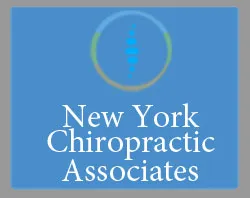- posted: Jul. 19, 2018
Natural Remedies for Inflammation
The simplest and most biochemically sound way of turning down the body’s pro-inflammatory response is by restoring a balance between pro- and anti-inflammatory foods. From a dietary standpoint, this means switching from vegetable oils to extra-virgin olive oil (high in anti-inflammatory omega-9 fatty acids). It also means avoiding most processed (boxed, canned, or frozen) foods, because their makers frequently add omega-6 fatty acids. By eating simple unprocessed foods-such as baked chicken, a salad, and steamed vegetables-it becomes easier to consume a more balanced ratio of omega-6 and omega-3 fatty acids.
However, if you’re like most people, you’ve been eating a diet high in omega-6 fatty acids and low in antioxidants for years. Simply restoring a balance is not enough to quickly offset accumulated damage, because the fatty acid composition of the body’s cells reflects their dietary ratios. It’s imperative to increase consumption of anti-inflammatory fatty acids and antioxidants.
These are the supplements to emphasize:
Omega-3 essential fatty acids
Found in fish oils, EPA and DHA are essential building blocks for the body’s anti-inflammatory prostaglandins. In addition, omega-3 fatty acids block the activity of an enzyme that breaks down joint cartilage. Daily dosage: 3 or more grams.
Vitamin E
Although Cox-2 and prostaglandin E2 levels rise with age, animal studies have shown that vitamin E supplements reverse the increase in Cox-2 and prostaglandin E2. Vitamin E also turns off compounds that turn on inflammatory genes. One recent study found that arthritics taking supplements of natural vitamin E (600 mg twice daily) for 12 weeks had their pain reduced by about half. Daily dosage: 400-800 IU.
Rosemary
This common kitchen herb is rich in ursolic acid and many of its derivatives. In laboratory experiments, Swedish researchers found that the ursolic acid extract of rosemary was a potent inhibitor of Cox-2 activity. Daily dosage: 100 mg.
How do you treat Chronic Inflammation?
Avoid pro-inflammatory foods
Avoid sugar and refined foods, processed foods, trans fats, dairy, gluten grains and factory farmed meats, all of which are pro-inflammatory.
Eat foods that cool inflammation
Lots of spices – in particular, turmeric, ginger, rosemary and basil
Lots of fruits and vegetables (preferably organic)
Wild salmon, sardines, herring and anchovies
Olive oil
Support your body’s own anti-inflammatory response with specific supplements
Vitamin D3
Fish oil
Pro-biotics
A good multivitamin
Balance your gut (gut imbalances are a common source of inflammation)
Avoid food allergens
Treat low-grade infections
Take probiotics
Decrease toxicity (toxicity will cause inflammation)
Eat organic foods as much as possible
Decrease the amount of chemicals you put on your skin
Decrease the amount of chemicals in your home
Exercise
There is lots of research showing that physical activity suppresses inflammation.
Lose weight
This is because fat cells fuel inflammation.
Get plenty of rest and relaxation
Stress promotes inflammation and therefore decreasing stress will decrease inflammation.
Brush and floss your teeth
Periodontal disease causes inflammation and flossing prevents periodontal disease.
The take home message in all this is relatively simple: pharmaceutical drugs, while providing rapid relief of symptoms, do not correct the underlying cause of chronic inflammation. The cause is frequently a diet that’s either unbalanced or lacking in key nutrients. No drug can correct a nutritional deficiency or imbalance. Only nutrients can do that.
